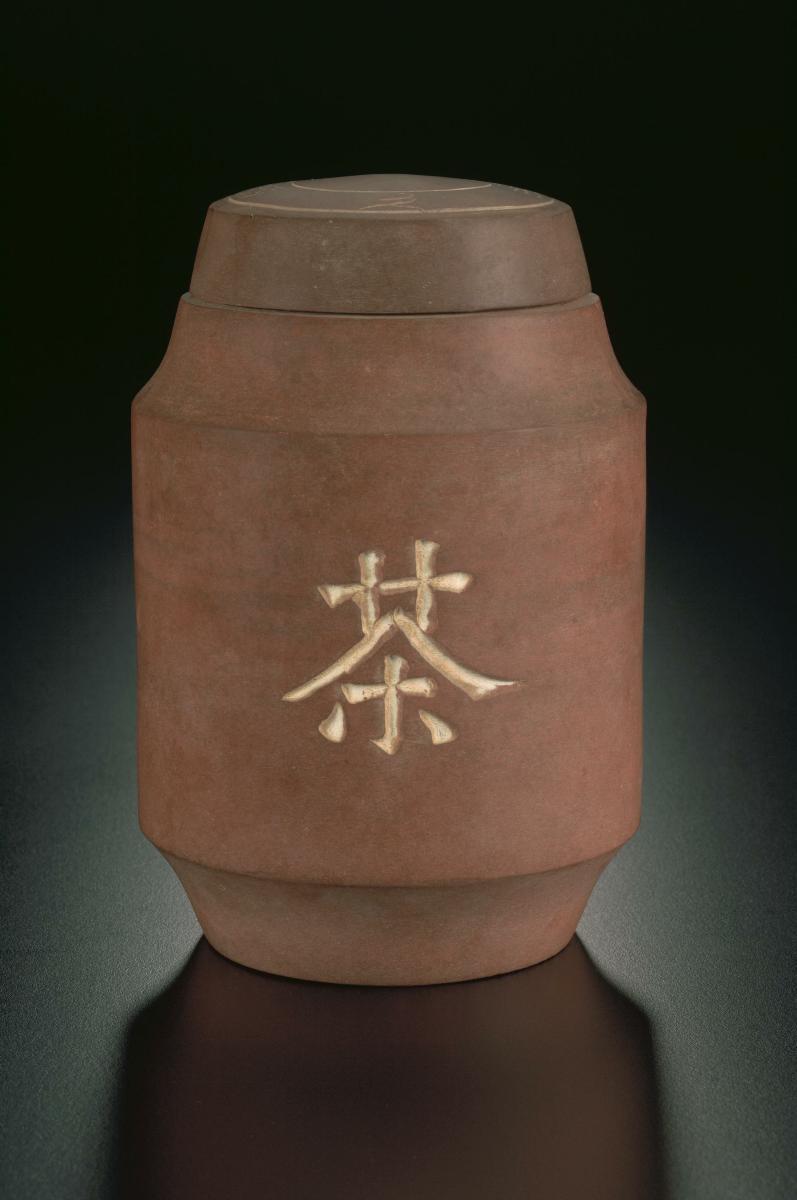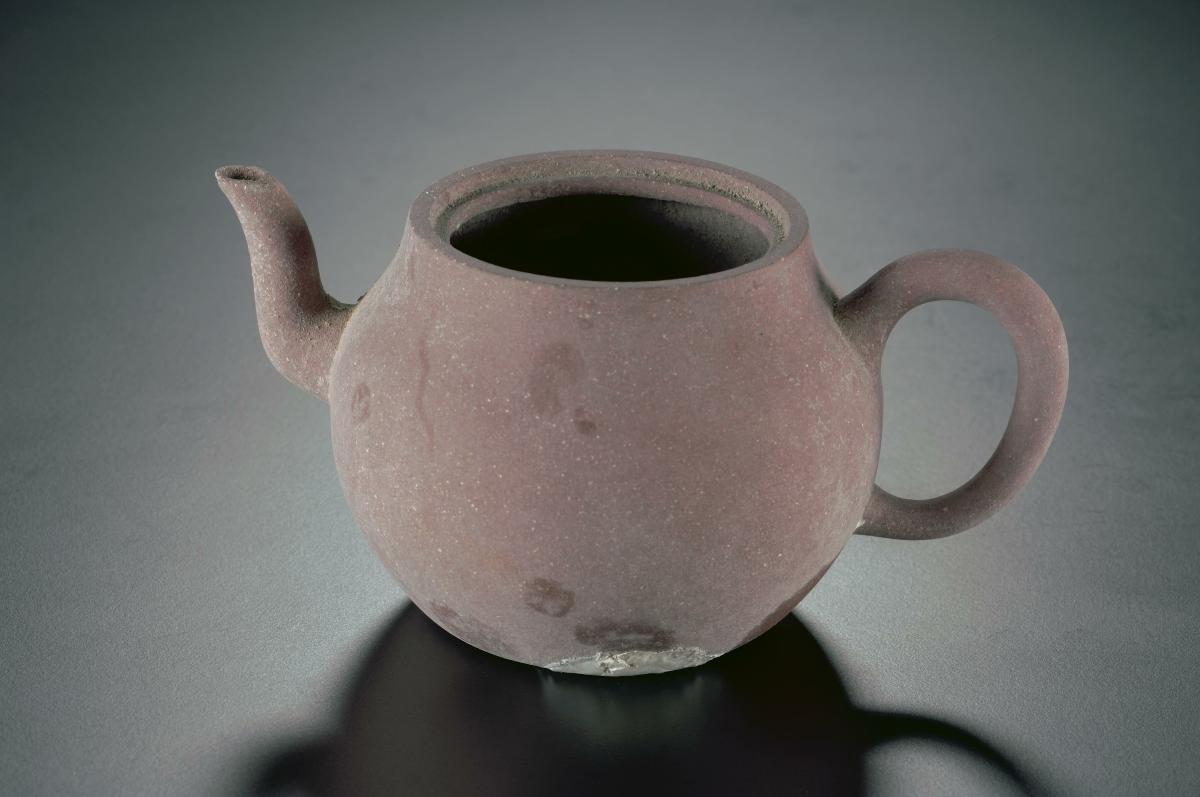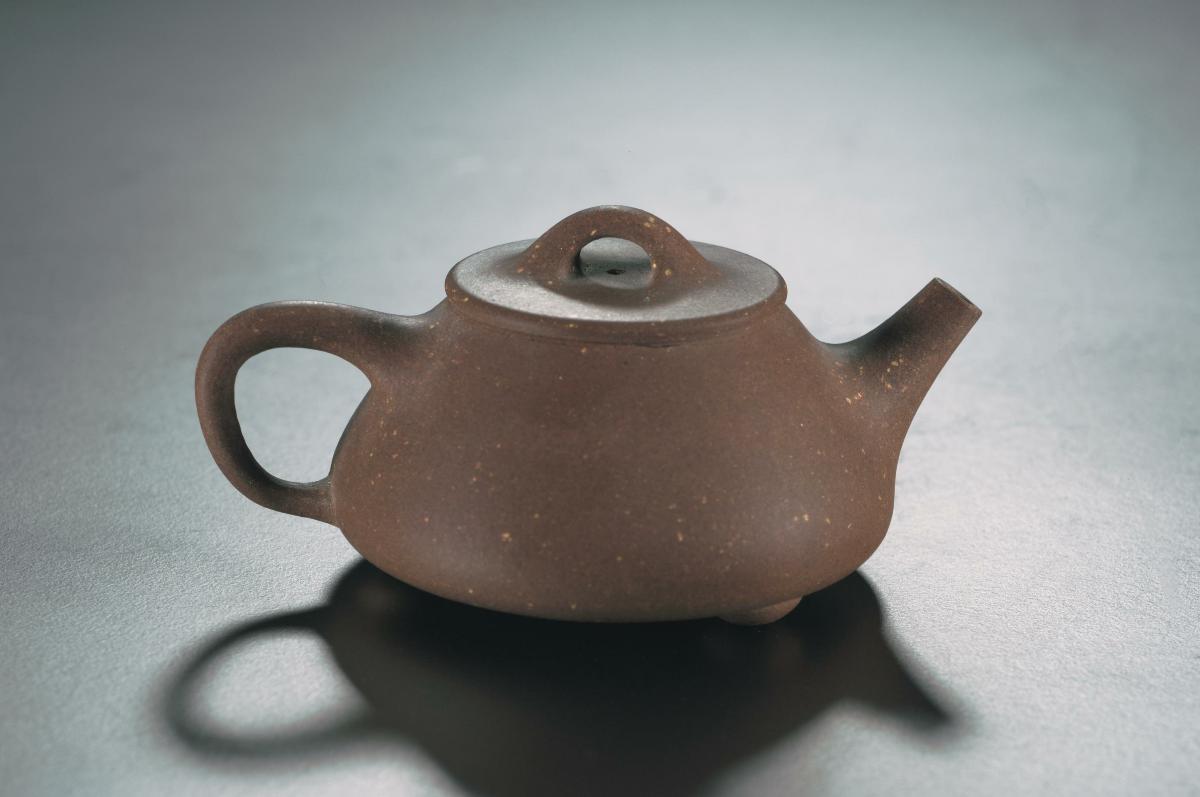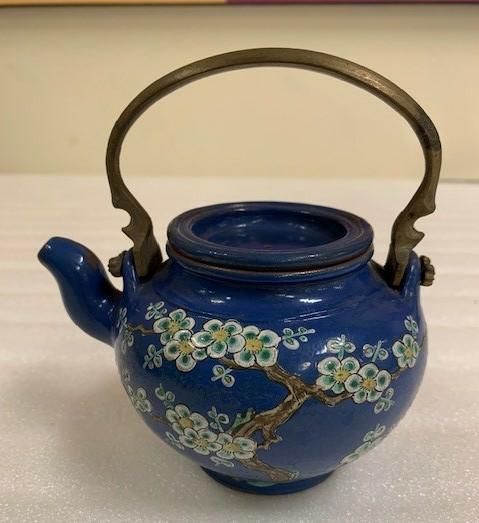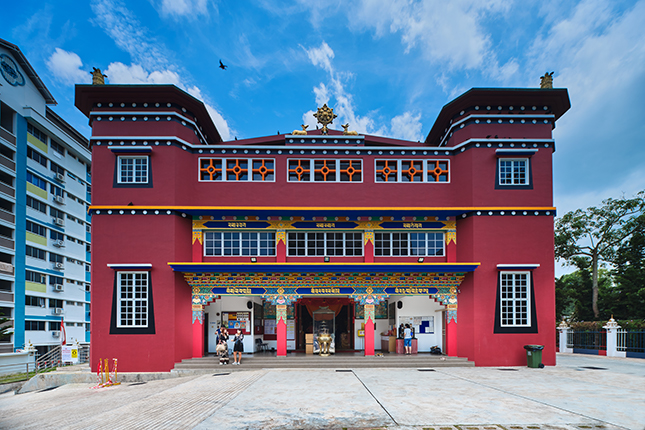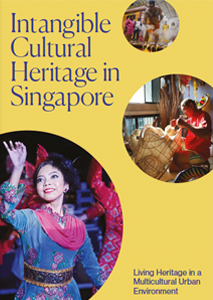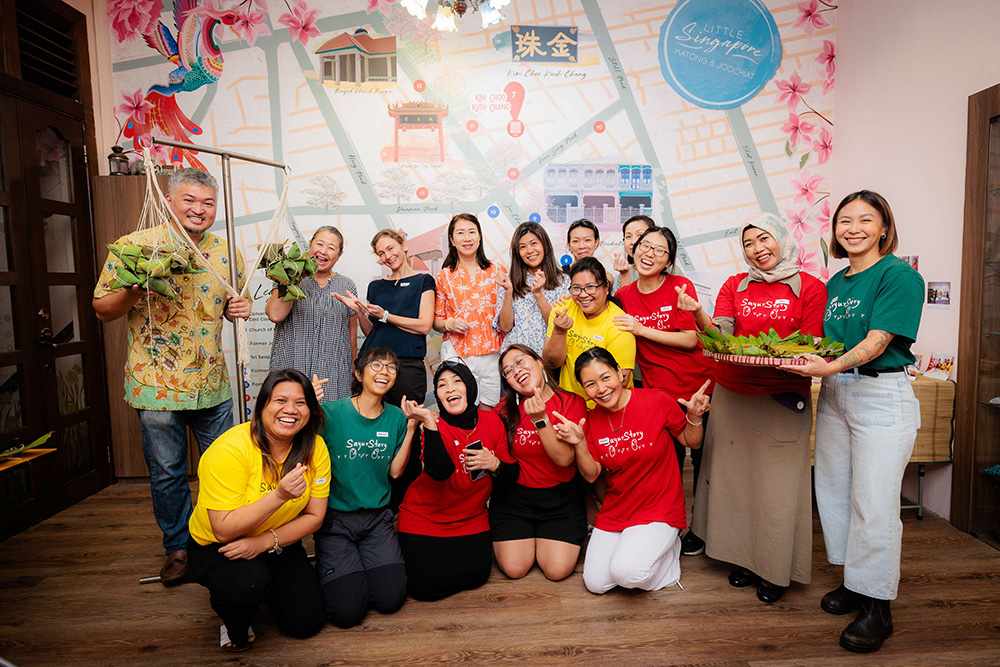This Yixing tea caddy with 茶(Tea) inscribed on the exterior, belongs to a type of ceramic known as Yixing stoneware. Introduced during the mid-Ming dynasty (1368-1644) as teawares for the literati, these wares were admired for their heat-absorbing properties, which kept tea warm and improved the strong aroma and taste of Chinese teas. It was also fashionable at the time to drink strong tea from tiny globular teapots. During the early 17th century, Yixing wares consisted of unglazed vessels inspired by natural forms. Enamels were introduced in the 18th century. Thereafter it has been suggested designs that included enamelled background, which served to make the white glaze often painted beneath the lighter enamels, show up their tones better.Yixing stoneware was still popular, especially with the Straits Chinese communities in Southeast Asia during the early 20th century.




